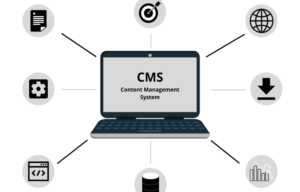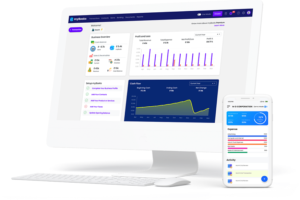Examples of Telephone Scams to Expect In 2023
4 min read
Have you ever received a call from someone claiming to be an IRS agent? Or have you received a call from a creditor asking for immediate payment so that they can avoid arrest? If so, then chances are high that you’ve been scammed. Scammers may be able to fool even the most experienced consumer with their sophisticated phone scams. So in this guide, we’ll explore some of the most common types of telephone scams, including where they come from and what tactics they use to catch their targets off guard.
A Caller Tells You They’re Calling from the Internal Revenue Service
A caller tells you they’re calling from the Internal Revenue Service, or they’re a creditor and need money immediately to avoid arrest.
The only time the IRS will contact someone is if there is a valid debt owed to them or if you owe taxes that have not been paid in full. If this caller asks for payment by prepaid debit card or wire transfer, it’s likely another scammer trying to steal your information to access your bank account and drain funds without your knowledge.
To confirm if they’re genuine or scam: know who is calling you by using a reverse phone call service.
You Receive a Call from a Stranger
You receive a call from a stranger who says they’ve been helping you with your tax return and now need your banking information to continue. This scammer will pretend to be from a legitimate company, which makes them sound like they have greater standing than they do. They may say, “We’re so sorry for any inconvenience this may cause you.”
They’ll ask for personal information such as your full name, address(es), phone number(s), email address(es), and Visa or MasterCard number if possible (but not all banks allow this). The caller will also ask if there are any third parties involved in making the payment arrangements–for example, an accountant–so they know who else is involved in paying taxes on their behalf (which increases the likelihood of getting away with it).
Someone Calls You, Claiming To Be an Attorney or Judge
If you receive such, you should first hang up. Get a reverse phone lookup service to verify such.
If they ask for your bank account or other personal information, tell them they have the wrong person. This can be used against you in court if they later use this data against you as evidence of fraud.
You also need to contact your local law enforcement agency immediately if any of these scams occur:
You think someone has impersonated someone else (such as a family member) while calling and asking for money or services from them.
You have been contacted by someone who claims to represent the government or has authority over some issue but refuses to provide details about what their position entails until receiving payment first;
An Acquaintance Asks for Money, Saying they’re in Trouble with the IRS and Needs Cash.
The IRS will not threaten to arrest you and will not demand cash payment, either. If someone calls and says they’re from the IRS, hang up and call them directly at 1-800-829-1040 or visit irs.gov/phone to verify their identity and learn more about what steps can be taken if fraud is suspected.
A Stranger Calls and Says He Has Found an Account on Your Bank Account
If you receive a call like this, you must be careful with what information you provide. If the caller claims that he has found an account on your bank account (which has been closed since a previous scam), asking for information about it so that he can transfer money into it, then ask them who they are and why they’re calling.
Someone Claims To Be an IRS Agent Who Says That S/He Has Found Counterfeit Checks in Your Name
Don’t believe it. Like most telephone scams, this one will mostly be a waste of your time and effort. The IRS does not call people or send emails asking for money over the phone unless they have received a complaint from you or someone else who knows your identity. If they send an email requesting payment, it should contain all the information on an actual check, including your name, address, and relevant account numbers.
Call the IRS for confirmation before sending any funds by wire transfer or prepaid card (commonly used by scammers). They may ask for more details about where you got those counterfeit checks written out in your name; if so, let them know! Keep yourself safe by not giving anyone personal information over the phone unless necessary – and even then, do so with extreme caution!
If you receive one of these calls, +1 602 610 3936 it’s important to know how to handle them and the best course of action when in such a situation.







